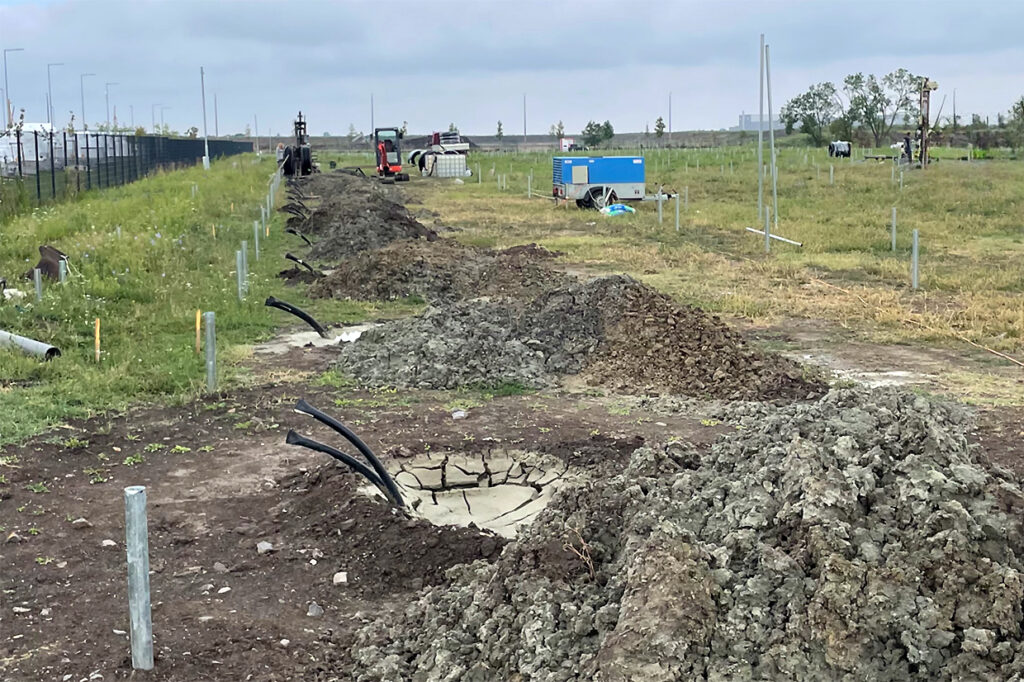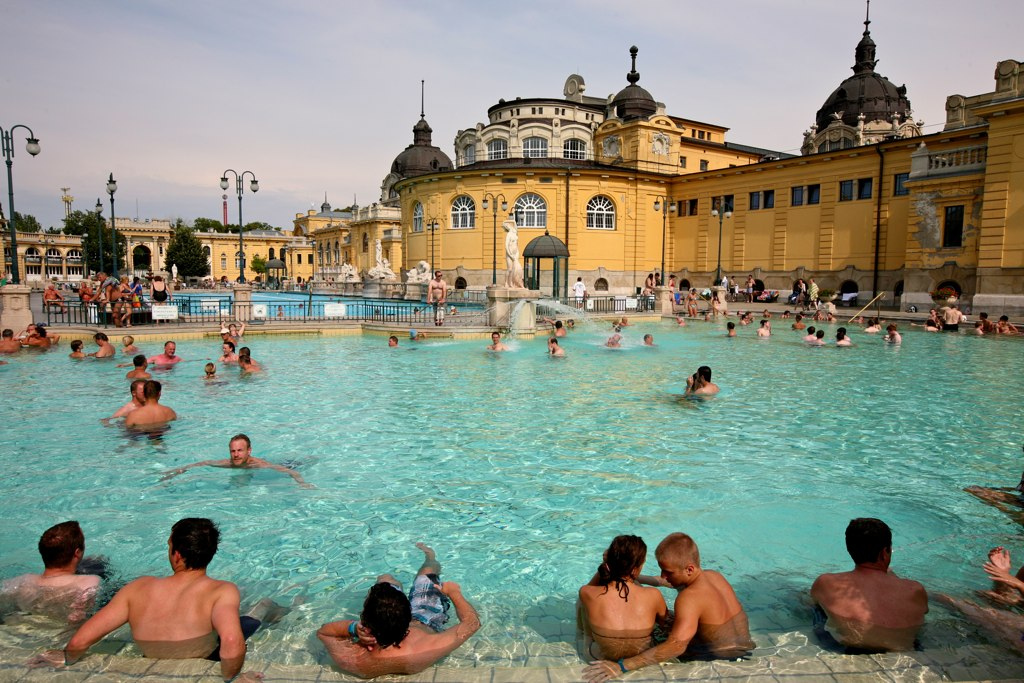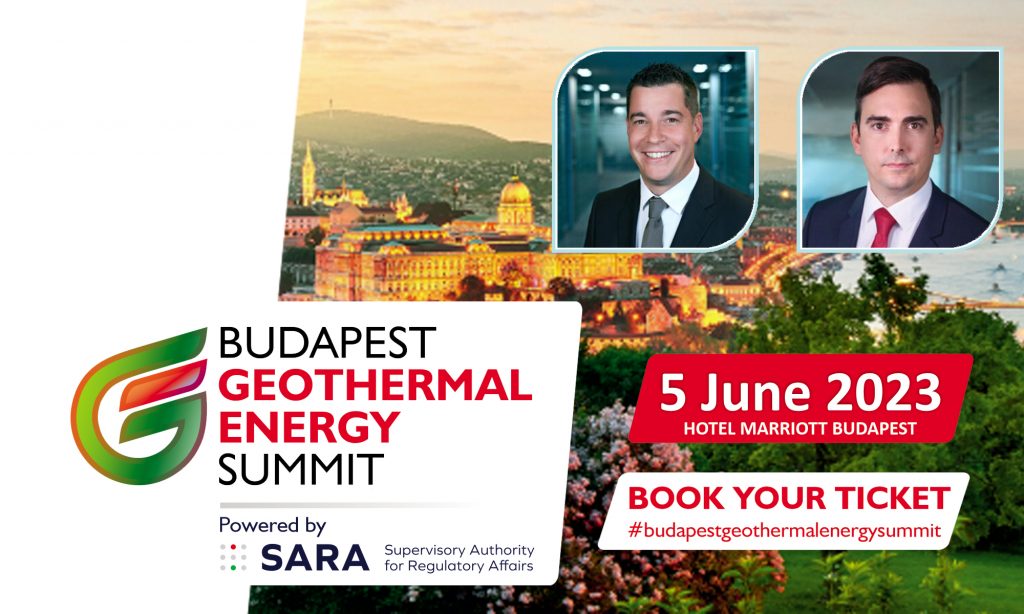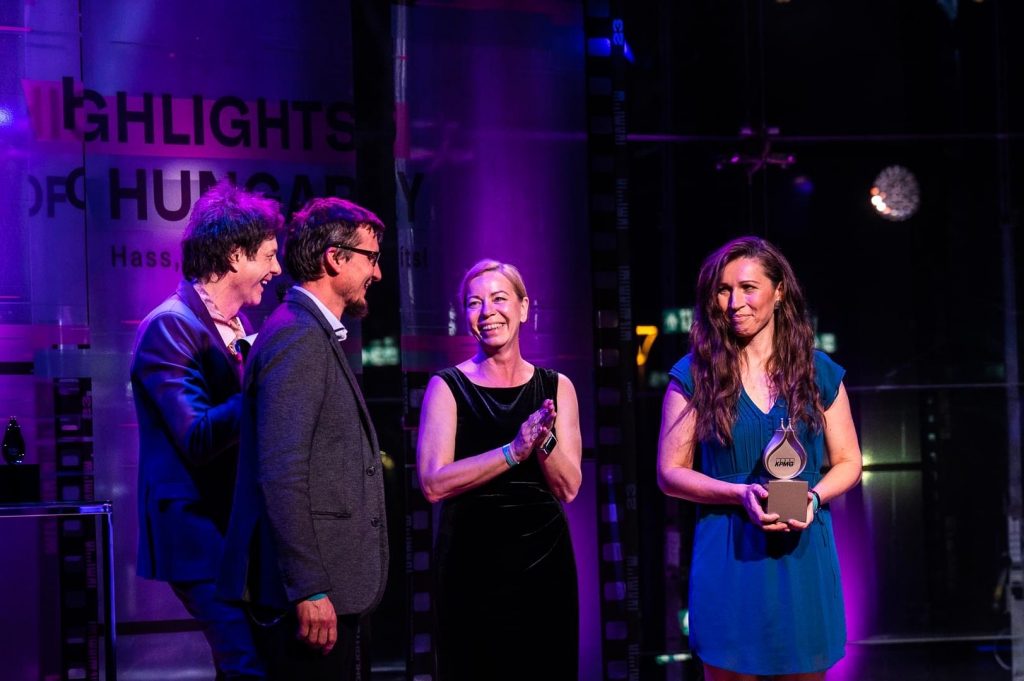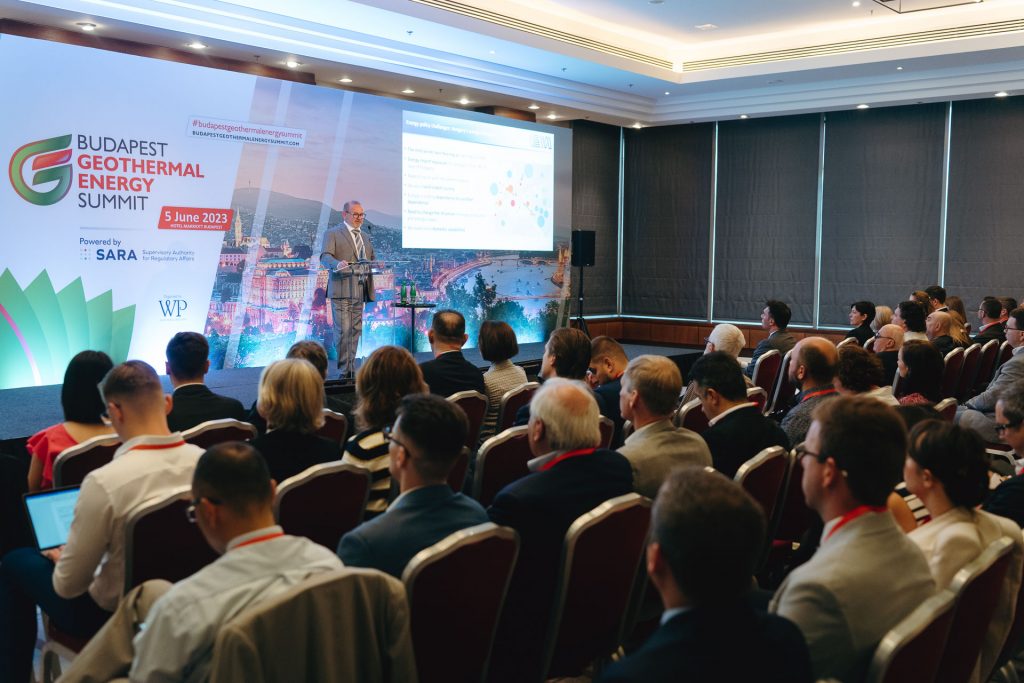
Hungary as a “future geothermal energy capital” of Europe
Kicking off the inaugural conference, Hungary’s Energy Minister, Csaba Lantos said that “we all believe that Hungary is a regional geothermal superpower.” The Minister underlined his government’s commitment to developing this sector and noted that currently, only 10% of district heating is supplied from geothermal sources.
“The best energy is the energy we produce ourselves,” said Marcell Biró, President of the Supervisory Authority for Regulatory Affairs of Hungary in the context of recent global events, during a subsequent keynote speech. Mr Biró said that more than 70 geothermal development applications have been submitted following the recent amendments to Hungary’s regulatory framework.
Today, we are in the “future geothermal energy capital” of Europe, said Miklos Antics, President of the European Geothermal Energy Council (EGEC) during a keynote speech presenting the current state of the sector. Geothermal energy is among the most misunderstood energy sectors, he highlighted. The EGEC President also underlined potential synergy opportunities with other sectors, such as oil and gas which could utilise its expertise in drilling as this is not within the remit of geothermal developers, he noted.
Providing a global overview of the geothermal sector, Jack Kiruja, Associate Programme Officer, Geothermal Energy at the International Renewable Energy Agency (IRENA) discussed insights from a recently published report by IRENA on the global market trends. Between 2000 and 2021, geothermal power capacity has increased by 3.5 per cent, he said. In particular, this area’s growth was driven by Turkey, Indonesia, Kenya and New Zealand, he added. “One of the challenges is inadequate technical expertise,” Mr Kiruja. Other challenges he mentioned include inadequate policies and regulatory frameworks.
Moving to the first panel discussion of the day, experts discussed perspectives on the growth of the geothermal sector in Europe. Starting the discussion, Tamás Pazsiczky, Director, Head of Energy and Resources Consulting Team at Deloitte said that is important for governments and industry to take advantage of the current situation to reinforce regulations to accelerate geothermal projects.
Looking at the market uptake in Hungary, Mr Pazsiczky said that despite the high potential, one of the main challenges is the visibility or interest of public and private players. “Unlike wind and solar, geothermal is not in people’s minds,” he said.
“I believe geothermal will have an important role in future, similar to other renewables like PVs,” said Csaba Kiss, Deputy CEO of the MVM Group during the discussion. In the company’s long-term strategy, “geothermal energy is very important” and it wants to be a “market leader” in geothermal energy. “By 2030, we would like to produce 300 MW based on geothermal sources,” he added.
The potential of the Pannonian Basin is “enormous,” Gábor Molnár, Managing Director of Mannvit underlined. “I’ve seen promising projects not start due to challenges like high upfront costs and financial risks.”
New support schemes for geothermal in Hungary
In a keynote speech, Viktor Horváth, Deputy State Secretary at the Hungarian Ministry of Energy outlined Hungary’s geothermal energy strategy. As part of this, the government plans to launch a new support scheme worth 64 million euros to mitigate initial financial risks and support subsurface activities, the Minister revealed. Additionally, the government plans to launch a preferential loan scheme to support geothermal investment, worth 450 million euros.
“We need more district heating and more geothermal in them,” said Miklós Zaránd, Deloitte’s energy industry Consulting Partner, providing an overview of the district heating in Hungary. Mr Zaránd outlined some of the key benefits of district heating including low and predictable operating costs and being weather independent. Conversely, Mr Zaránd noted the major challenges: “The first one is location.” High heat demand is usually not fulfilled with geothermal, especially in areas with lower energy efficiency levels, he noted.
Unpacking the uses of geothermal energy further, the conference’s second panel discussion focused on the potential of using geothermal energy in district heating and cooling. Eirikur Bragason, COO of Arctic Green Energy noted Iceland’s health benefits associated with switching to geothermal district heating as well as food security, citing Icelandic greenhouse gases. In terms of implementing geothermal district heating, “for every city there is a very specific solution,” he said.
Talking about the geothermal district heating in the future, Miklos Antics, emphasised the importance of highlighting the role of geothermal energy in the wider public – “we need to speak about geothermal energy every day.” Mr Antics urged stakeholders to make progress in this area, which today faces many misconceptions and misunderstandings.
Mr Bragason then highlighted the dominant position of natural gas in today’s district heating systems in countries like Hungary and the crucial role of geothermal in reducing fossil fuel dependence in this area. “You can reduce that really heavily with geothermal energy,” he emphasised. The final panel focused on the enablers of geothermal development from regulatory and financial perspectives.
Looking once again at district heating, Pál Ságvári, Vice President of the Hungarian Energy and Public Utility Regulatory Authority recalled how the rise of gas prices during the energy crisis showed the vulnerabilities of the district heating system, 75 per cent of which is running on gas in Hungary. “We would like to see a system where different fuel types can compete,” he emphasised. Regarding geothermal development, he mentioned two main issues: on the technical side there is the issue of energy efficiency and on the economic side as investors are looking for stability.
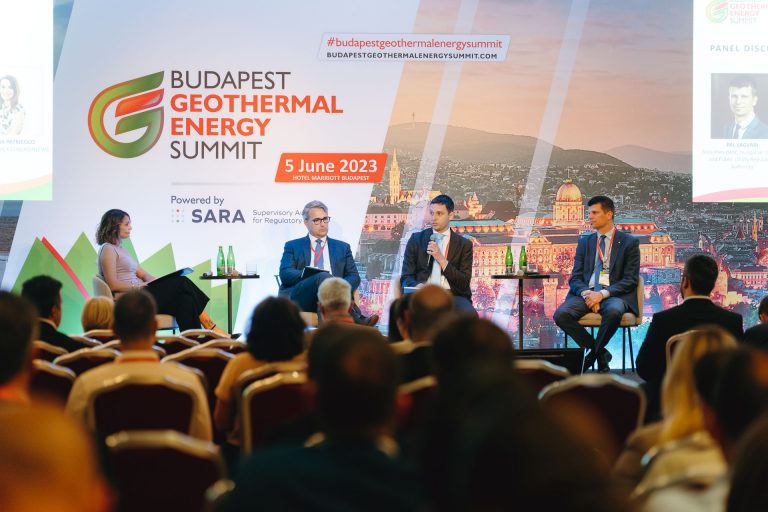
Panel discussion with Pál Ságvári, Bence Gonda, Mariano González Serrano, and Claudia Patricolo (source: White Paper Consulting)
Bence Gonda, Strategic Vice President at the Supervisory Authority for Regulatory Affairs of Hungary said that the objective of the changing regulatory system was to give the market a chance and have the companies come to the government. He presented that in the new system, the authority grants permits for four years, if it’s successful they sign a contract for 35 years, which can be renewed for another 17 years, which presents a unique opportunity for investors.
On the financing side, the World Bank is the number one financier of geothermal energy. Mariano González Serrano, Senior Energy Specialist at the World Bank said that “We have to provide alternatives to industries that want to achieve a low carbon footprint, once we defined different uses, we have to design the corresponding support system.”
